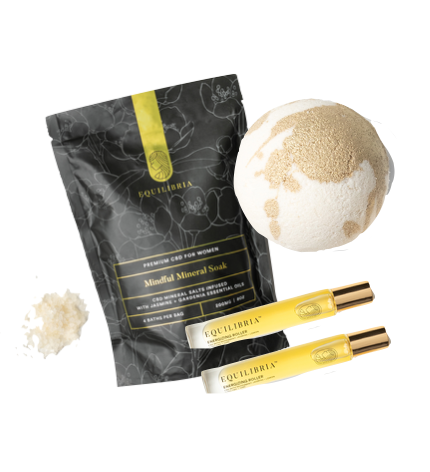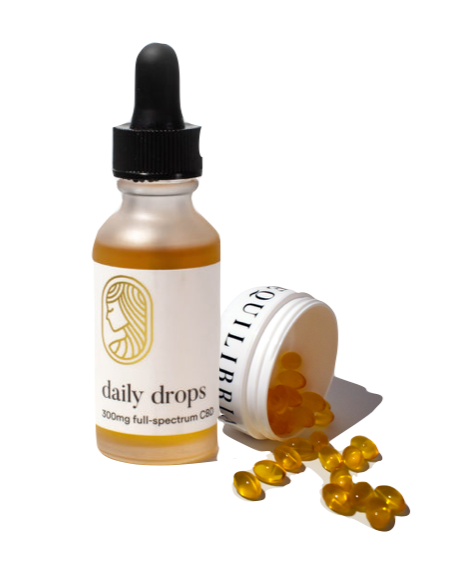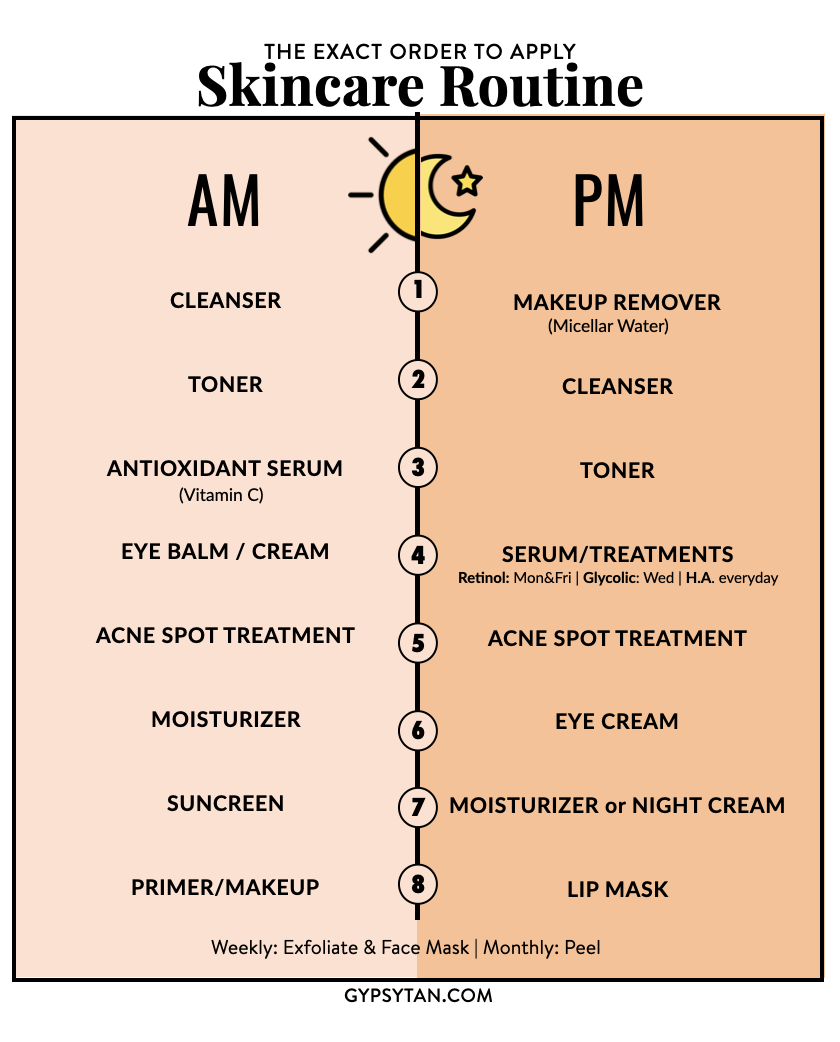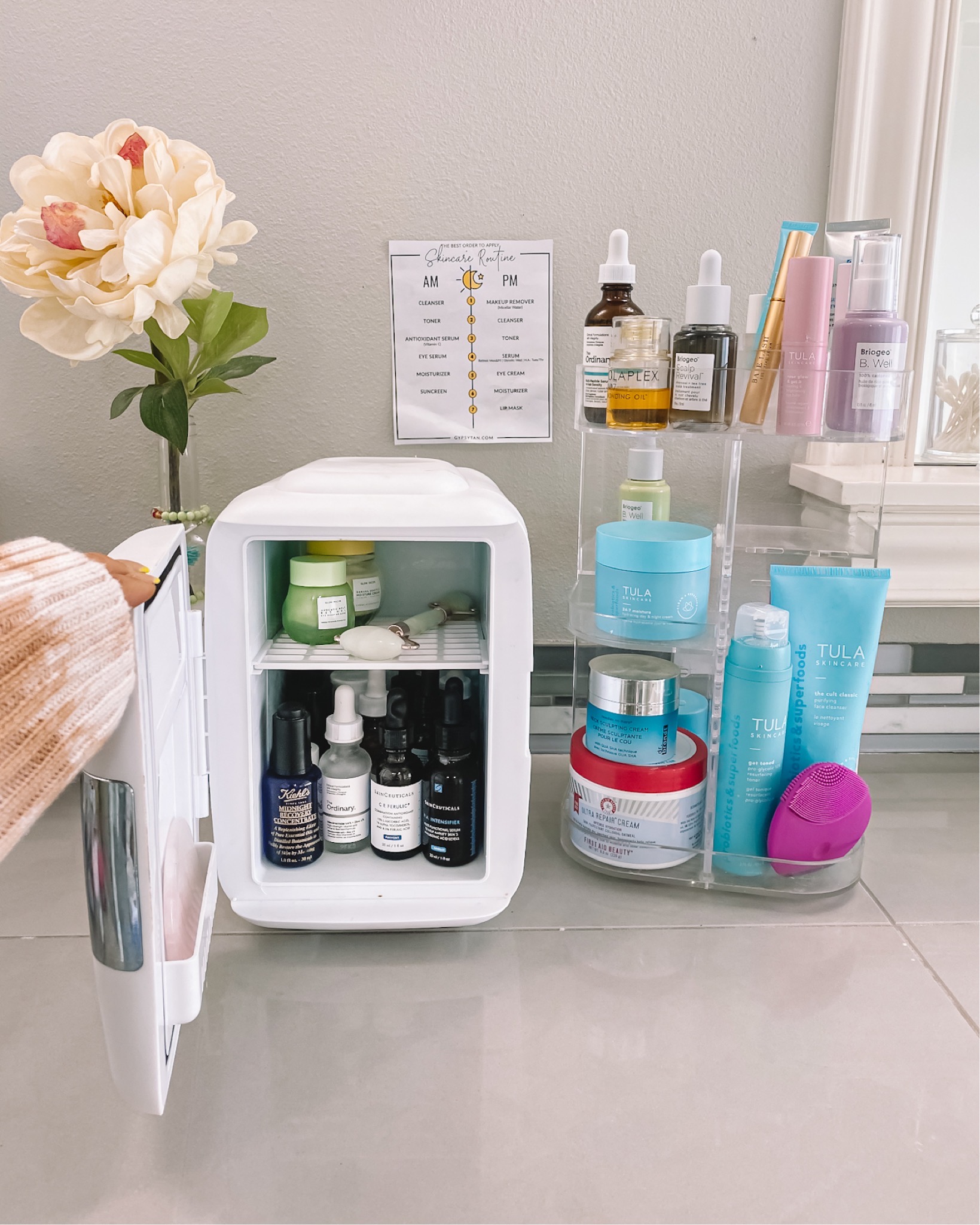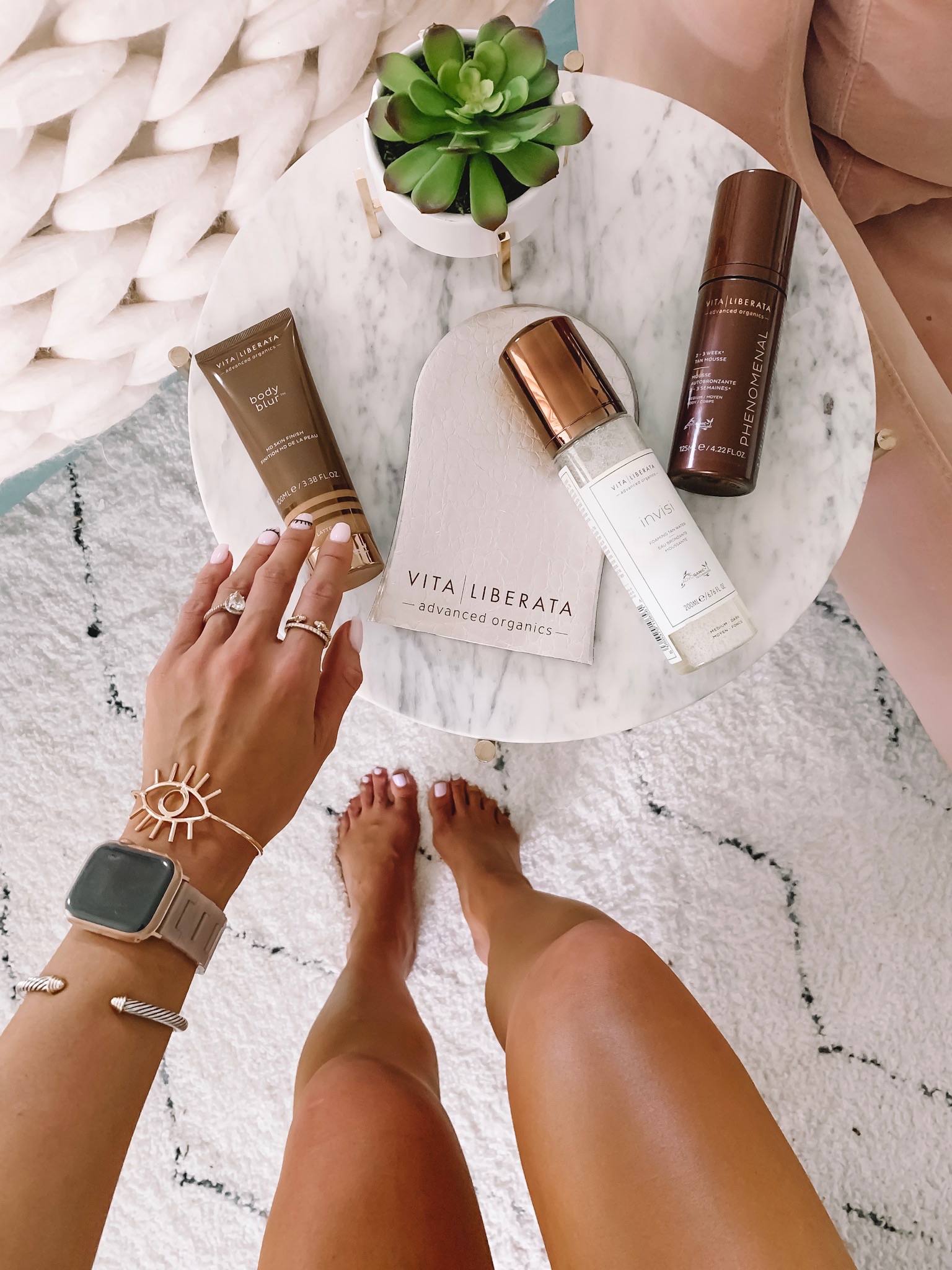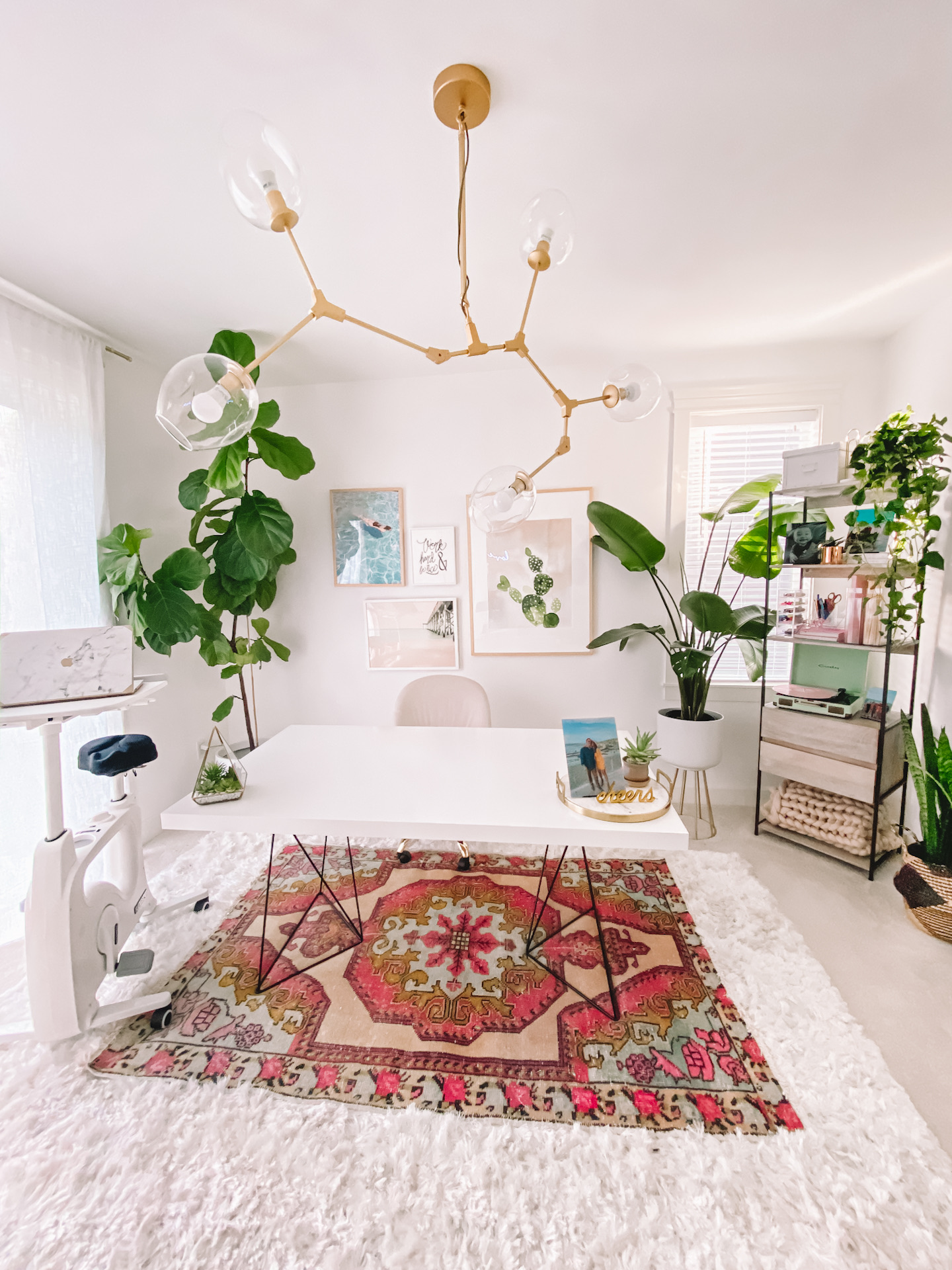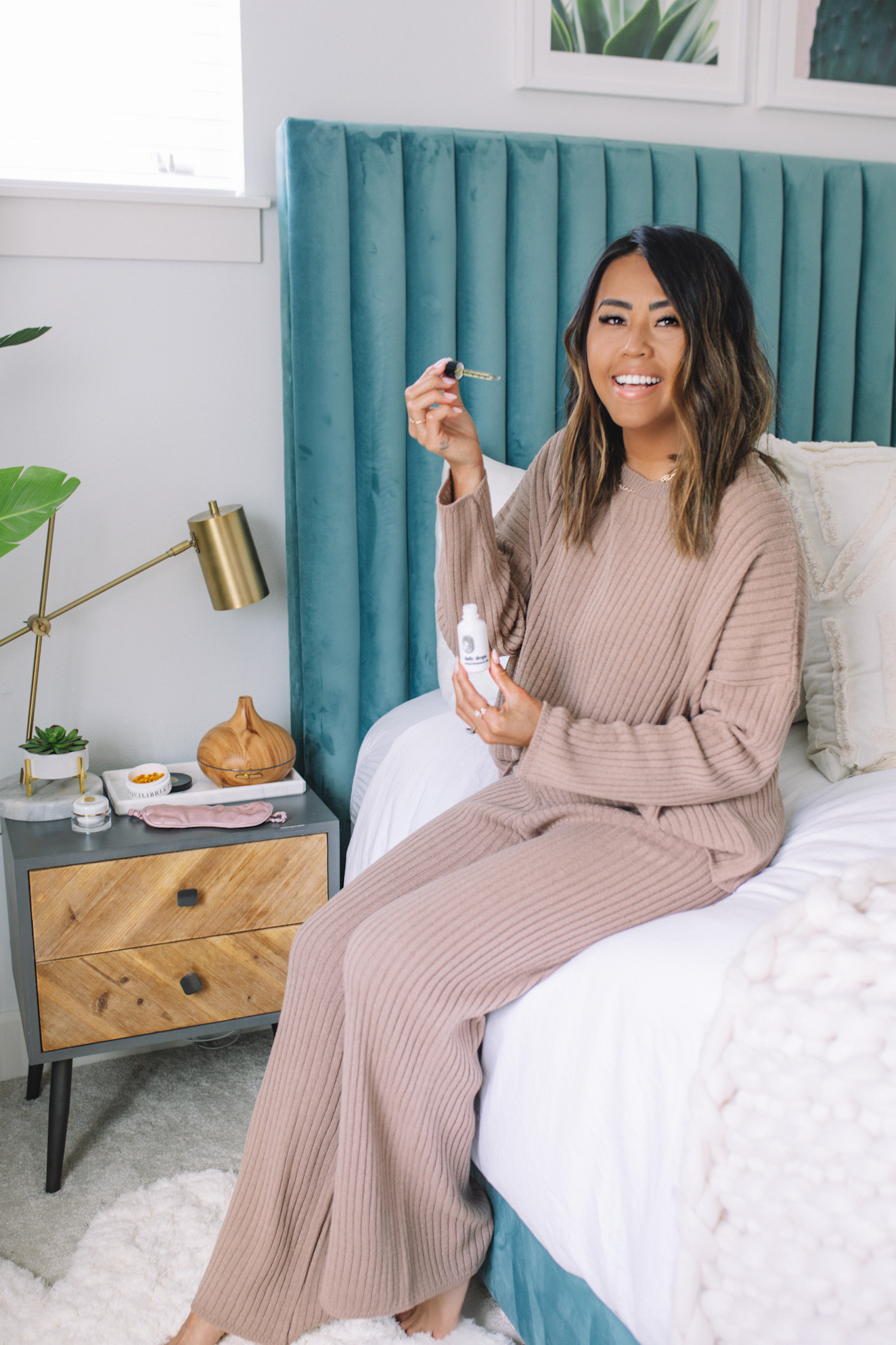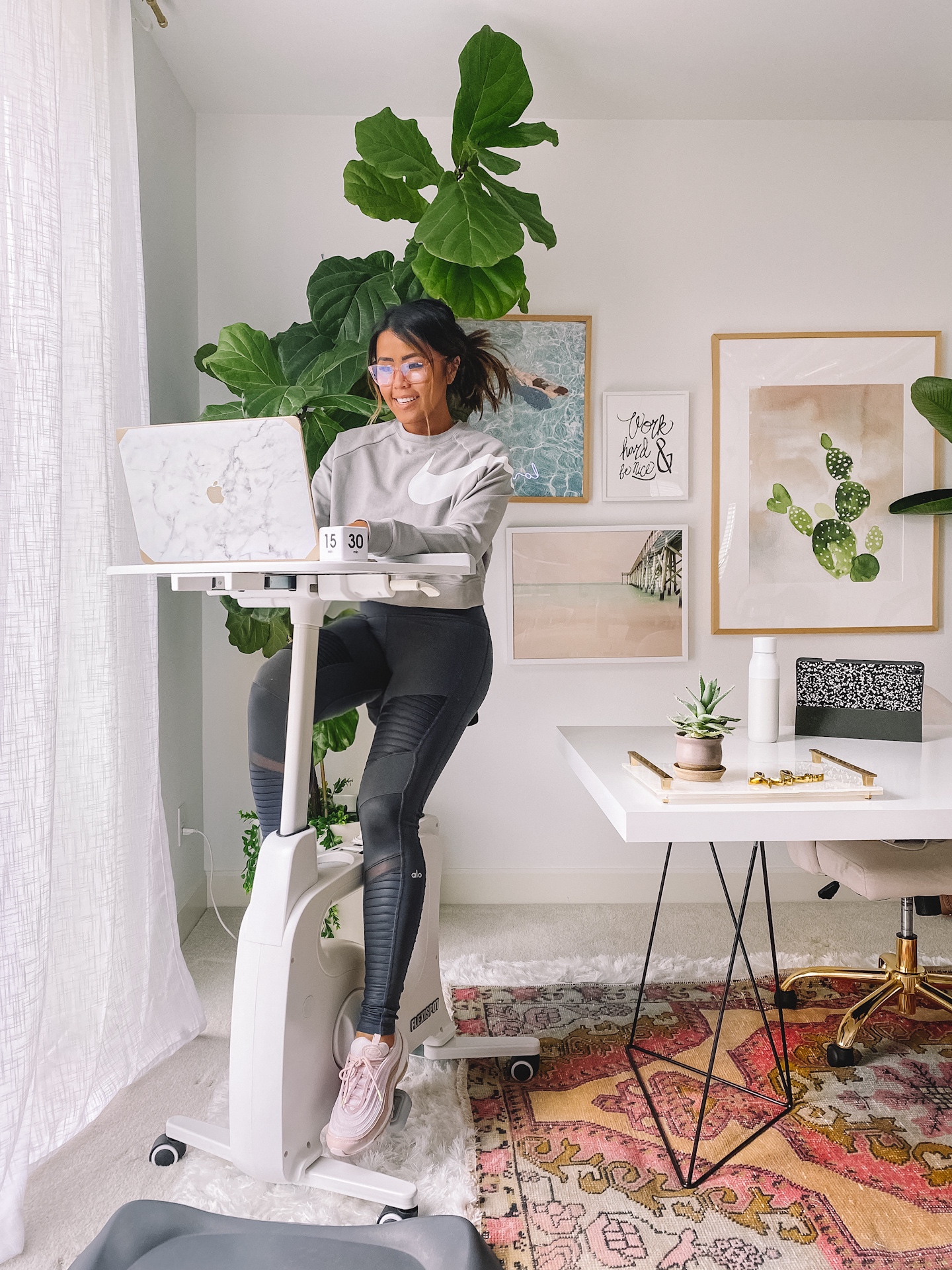11 Science-Backed Ways to Reduce Stress Right Now
It’s fair to say that our lives have changed dramatically in a very short amount of time. Change, especially when it involves being locked in the house, is hard for everyone, and it’s often very stressful. Stress and anxiety are common experiences for most people. In fact, 70% of adults in the US say they feel stress or anxiety daily. A certain amount of anxiety is normal, but how do you avoid spinning completely out of control? Here are 11 science-backed tips on how to relieve stress and anxiety. With that in mind, here are some simple things you can do to relax at home. Some are as easy as breathing!
You might also like: The best loungewear sets to wear while social distancing at home
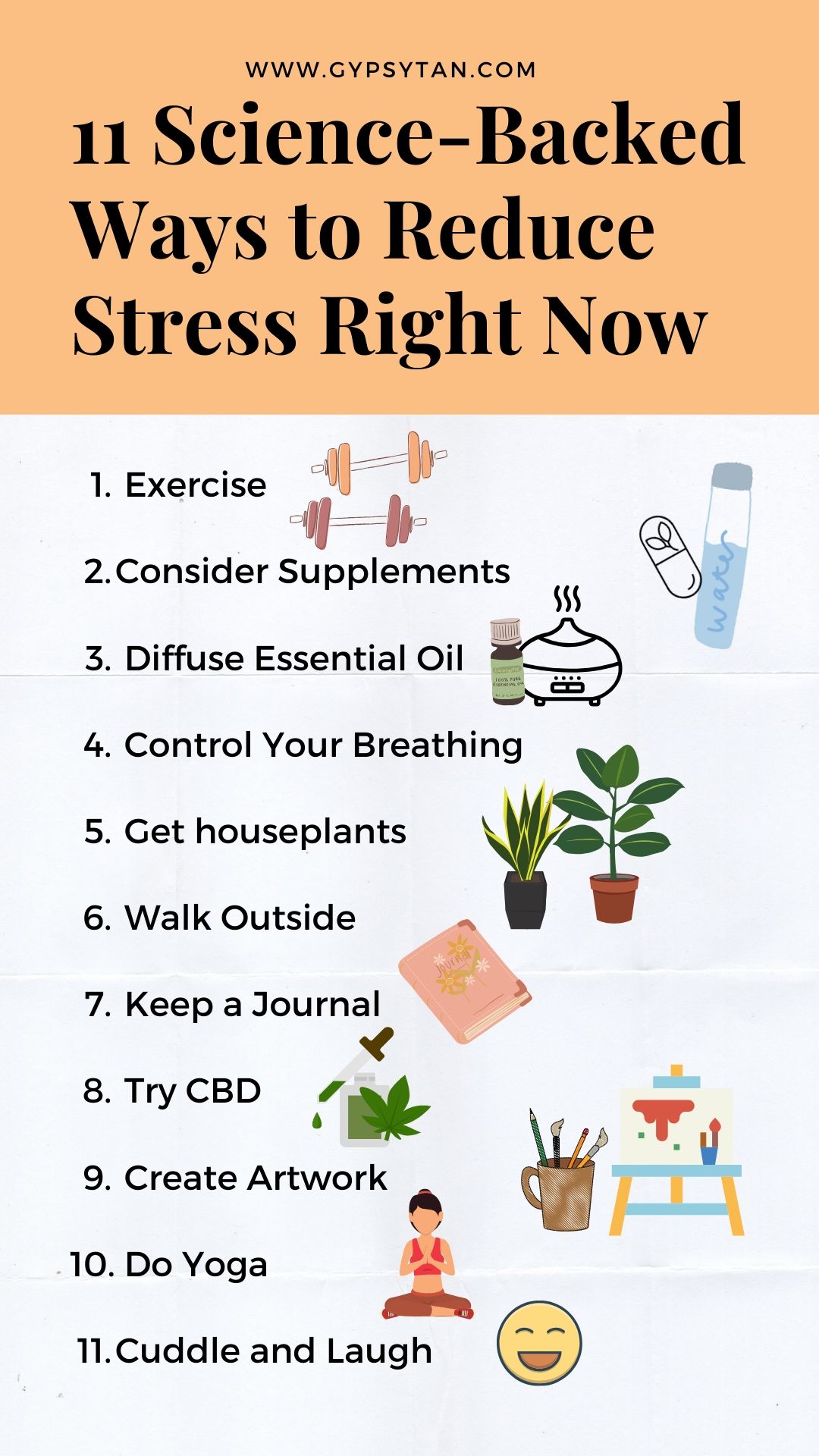
How to Relieve Stress and Anxiety: 11 Science-Backed Methods to Try at Home Now
1. Exercise
Exercise is one of the most important things you can do to combat stress. According to studies, people who exercise regularly are less likely to experience anxiety than those who don’t exercise. Regular exercise can help lower stress and anxiety by releasing endorphins and improving your sleep and self-image.
2. Consider Supplements
Certain supplements can reduce stress and anxiety, including ashwagandha & omega-3 fatty acids.
- Omega-3 fatty acids: One study showed that medical students who received omega-3 supplements experienced a 20% reduction in anxiety symptoms (2). I take this multi-vitamin that included Omega-3 + eight other essential nutrients!
- Ashwagandha: The herb ashwagandha is sometimes used to treat stress and anxiety. Researchers have reported that it blocked the stress pathway in the brains of rats by regulating chemical signaling in the nervous system (3).
3. Diffuse Essential Oils
Using essential oils or burning a scented candle may help reduce your feelings of stress and anxiety (5). Some scents are especially soothing. Using scents to treat your mood is called aromatherapy. Several studies show that aromatherapy can decrease anxiety and improve sleep (6, 7, 8).

4. Focus on Breathing
Just focusing on your breath or changing the way you breathe can make a big difference to your overall stress level. Breathing techniques can calm your body and your brain in just a few minutes. The best news is, no one around you will even know you're doing them. So whether you're in a stressful meeting or you're sitting in a crowded theater, breathing exercises could be key to reducing your stress.
I like the 4-7-8 breathing technique, also known as “relaxing breath,” involves breathing in for 4 seconds, holding the breath for 7 seconds, and exhaling for 8 seconds.
To use the 4-7-8 technique, focus on the following breathing pattern:
- empty the lungs of air
- breathe in quietly through the nose for 4 seconds
- hold the breath for a count of 7 seconds
- exhale forcefully through the mouth, pursing the lips and making a “whoosh” sound, for 8 seconds
- repeat the cycle up to 4 times
5. Houseplants
There's been ongoing research that suggests that indoor plants not only purify the air, but have calming effects on your mood, stress levels and blood pressure. Here is my list of 7 easy to care for indoor plants that clean the air and remove toxins.
6. Take a Walk
It's official - you literally CAN walk away stress. There have been so many studies that proves that talking a brisk walk outside could actually shift your brain into a meditative state and boosts endorphins, which can reduce stress hormones and alleviate mild depression.
7. Start A Journal
One way to handle stress is to write things down. Keeping a journal can help relieve stress and anxiety, especially if you focus on the positive. While recording what you’re stressed about is one approach, another is jotting down what you’re grateful for. Gratitude may help relieve stress and anxiety by focusing your thoughts on what’s positive in your life. Shop for journals on Amazon.

8. Try CBD
These days, cannabidiol, or CBD, is in everything from tinctures to bath bombs. Research on this popular supplement is pretty slim at this point. But with my personal experience, I found that it has helped with stress and I get better sleep!
USE CODE: GYPSYTAN for 15% off first order!
9. Take a Yoga Class
Yoga has become a popular method of stress relief and exercise among all age groups. Some studies have examined yoga’s effect on mental health. Overall, research has found that yoga can enhance mood and may even be as effective as antidepressant drugs at treating depression and anxiety (17).
10. Create Artwork
Getting in touch with your creative side may have been easy for you during childhood, but if you’ve lost touch with your penchant for artwork, it’s not too late to pick it up again. If you aren't into drawing or painting, consider coloring in a coloring book. Adult coloring books have risen in popularity and for good reason—research consistently shows that coloring can have a meditative effect. One study found that anxiety levels decline in people who were coloring complex geometric patterns, making it a perfect outlet for stress reduction.

11. Cuddle and Laugh
Cuddling, kissing, hugging and sex can all help relieve stress. Cuddling your pets too! Positive physical contact can help release oxytocin and lower cortisol. This can help lower blood pressure and heart rate, both of which are physical symptoms of stress.
© Sabrina tan
brand + web design by good on paper
